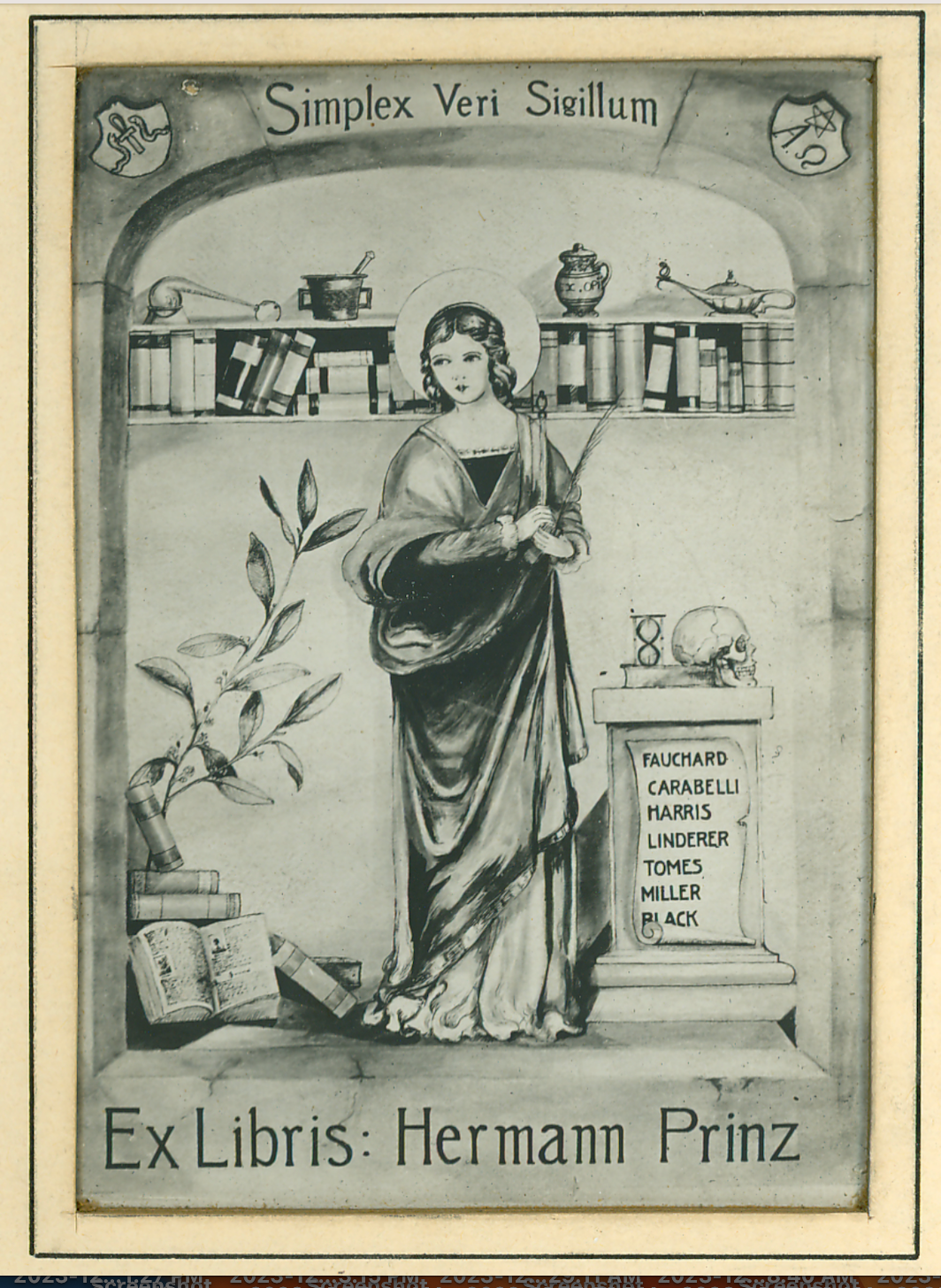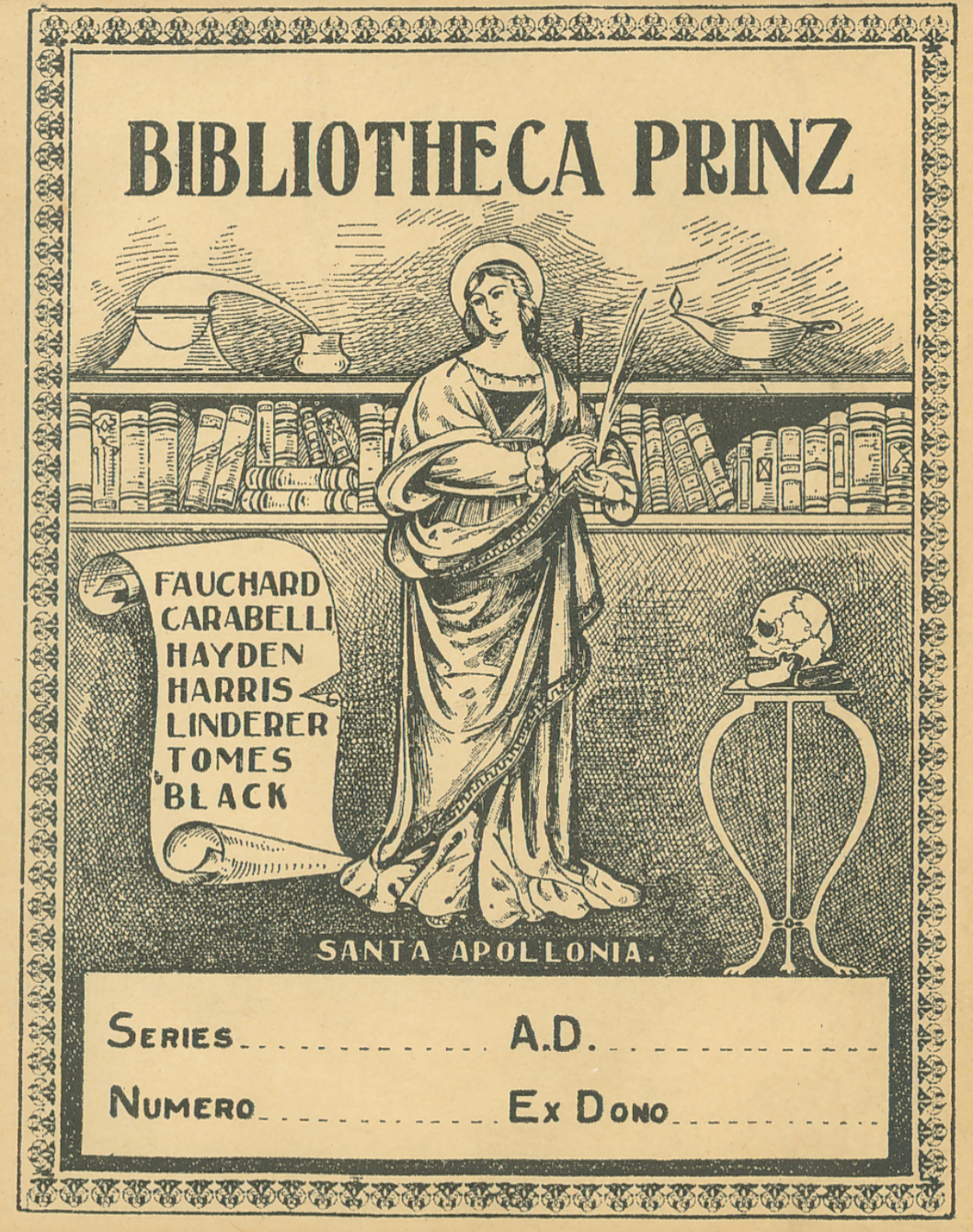New Dental Medicine Collaboration Highlights Relationship with Penn Libraries
A look back at the history of the Dental Library sheds light on the formation of the new Center for Integrated Global Oral Health.

“To understand a science, it is necessary to know its history.” -Auguste Comte
A new endeavor at Penn Dental Medicine highlights the interconnected relationship between science and library, scientist and librarian: the Center for Integrated Global Oral Health (CIGOH). Penn’s Dental Library plays an important role in this collaboration.
CIGOH aims to “unite health researchers, educators, and practitioners at the University of Pennsylvania and beyond in seeking creative solutions to address unmet oral health needs related to the worldwide prevalence of caries, periodontal disease, oral cancer, and craniofacial deformity which impacts more than 3.5 billion people annually.” A look back at the history of Penn’s Dental Library helps shed light on this unique synergy.
The Penn Dental Medicine Library is a legacy of Edward Cameron Kirk, Dean of Penn Dental, 1895 – 1917; Hermann Prinz, Professor Emeritus of Pharmacology; and Ann Louise Reazin, the dental school’s first librarian. Their intertwined lives and work hold the kernel of what today is represented in the work ethos of the CIGOH. Michael Glick, PDM ’88, HUHSDM ‘85, a vocal advocate for librarians and libraries, is the Executive Director of CIGOH. The Center is also home to the newest Cochrane Oral Health Collaborating Center, headed by Alonso Carrasco-Labra, a leading authority in evidence-based health care at Penn Dental Medicine. Faculty and staff in these relatively new areas have already become well acquainted with Dental Library staff and have utilized the services of the Research Data & Digital Scholarship team, interlibrary loan, and electronic acquisitions.
Kirk founded the library with his donation of 4,000 texts, including the oldest dental book in the world (pictured above) and the oldest dental book in Spanish. This formed the basis for what was considered the most comprehensive collection of its kind at the time. Kirk also solicited donations of collections nationally and abroad. Prinz and Reazin worked closely to organize the collection, including the creation of a unique classification system to meet the needs of dental medicine, based partly on the Dewy Decimal system. Prior to this new hybrid classification system, one would need to look at individual journals or a book’s table of contents to determine the subject. The organization and classification of information was revolutionary, as it opened up the collection to clinicians and researchers in a manner that was not possible before. Thanks to the work of Prinz and Reazin, clinicians could search by subject and find all texts that covered the area. This catalog they created is akin to creating a new search engine today that includes all that is known about dental medicine. Notably, their classification system was much better than ChatGPT, which does not hold — or synthesize very well for that matter — anywhere near all the dental evidence available in books and journals today. Their catalog was based on the most comprehensive collection of dental medicine text of the time.

|

|
Two bookplates, both from the collection of Hermann Prinz, depict Saint Apollonia, patron saint of dentistry.
At the heart of CIGOH is the recently instituted Cochrane Oral Health Collaborating Center, which is committed to working with researchers worldwide to create systematic reviews that summarize the best available evidence on oral health topics for clinicians, policymakers, patients, and caregivers. Cochrane, as an independent, not-for-profit organization, produces systematic reviews across all areas of medicine. Over 37,000 healthcare professionals from more than 190 countries contribute to Cochrane every day to ensure health information is current, easy to access, and free from commercial sponsorship and conflict of interest. From its inception, it has set the global standard for systematic reviews. 1
Librarians within the Cochrane Collaboration are following in the footsteps of Prinz and Reazin by helping to identify and shape clinical questions and find the evidence to apply to emergent health care problems. These librarians play a pivotal role in the production of systematic reviews, as these publications require researchers to review or read many titles and abstracts identified by a librarian’s search in a variety of databases; synthesize the aggregate evidence from the selected studies; and produce an analysis. The reading and reviewing of hundreds or even thousands of citations is an essential step of systematic review development and one that ultimately leads to the discovery — dependent on the type of review — of optimal therapies and the knowledge of the state of a particular clinical topic.
The foresight of Kirk’s boundaryless collection development zeal married to the ingenuity of a professor and a librarian, driven to make accessible works once bound by calfskin and faded spines, was an early manifestation of the School’s international reach and engagement; the cosmopolitan nature of PDM and its mission finds its roots in the faculty and the librarian who identified the need for a library as well as a way to find evidence easily.
Caregivers are mentioned distinctly on CIGOH’s web page because a long-standing focus of the Dental School has been services for people with disabilities through the Personalized Care Suite. As part of the new Care Center for Persons with Disabilities, PDM provides care tailored to an individual’s unique needs and challenges. The P-CARE suite also hopes to study and develop techniques and products to further improve the care of people with disabilities.
Inherent to these activities is a tacit agreement, or rather a partnership with the library and librarians, to assist, support, and improve this most important intervention into the future of dental medicine through creative curation and application of pages or bytes of information.
*Per the University’s Guidelines on AI, I disclose that I utilized AI (Grammarly), in an effort to correct grammar errors and improve phrasing.
[1] Cochrane Oral Health Collaborating Center at Penn Dental Medicine https://www.dental.upenn.edu/research/center-for-integrative-global-oral-health/cochrane-oral-health-collaborating-center-at-penn-dental-medicine/
Date
January 9, 2024
